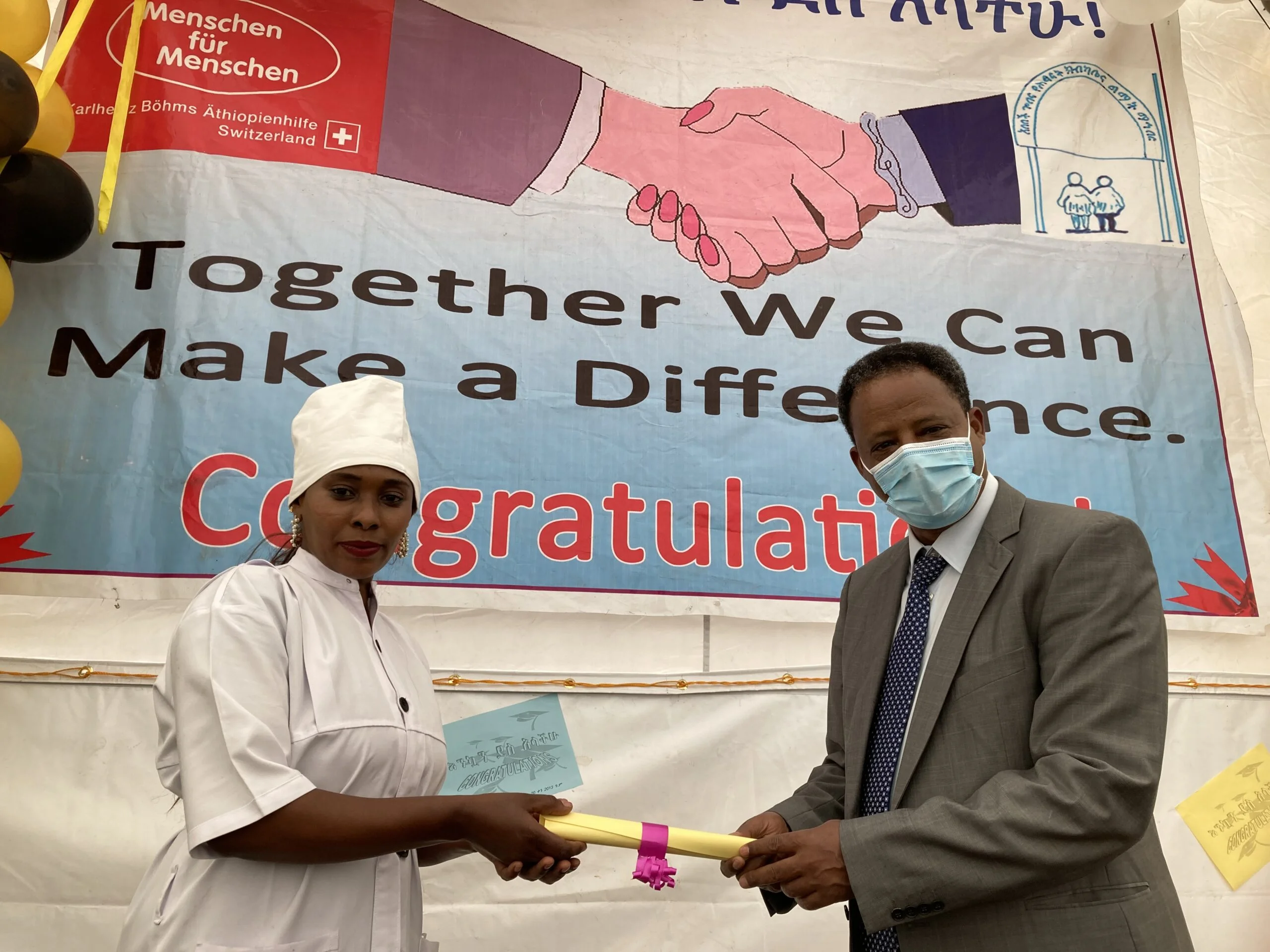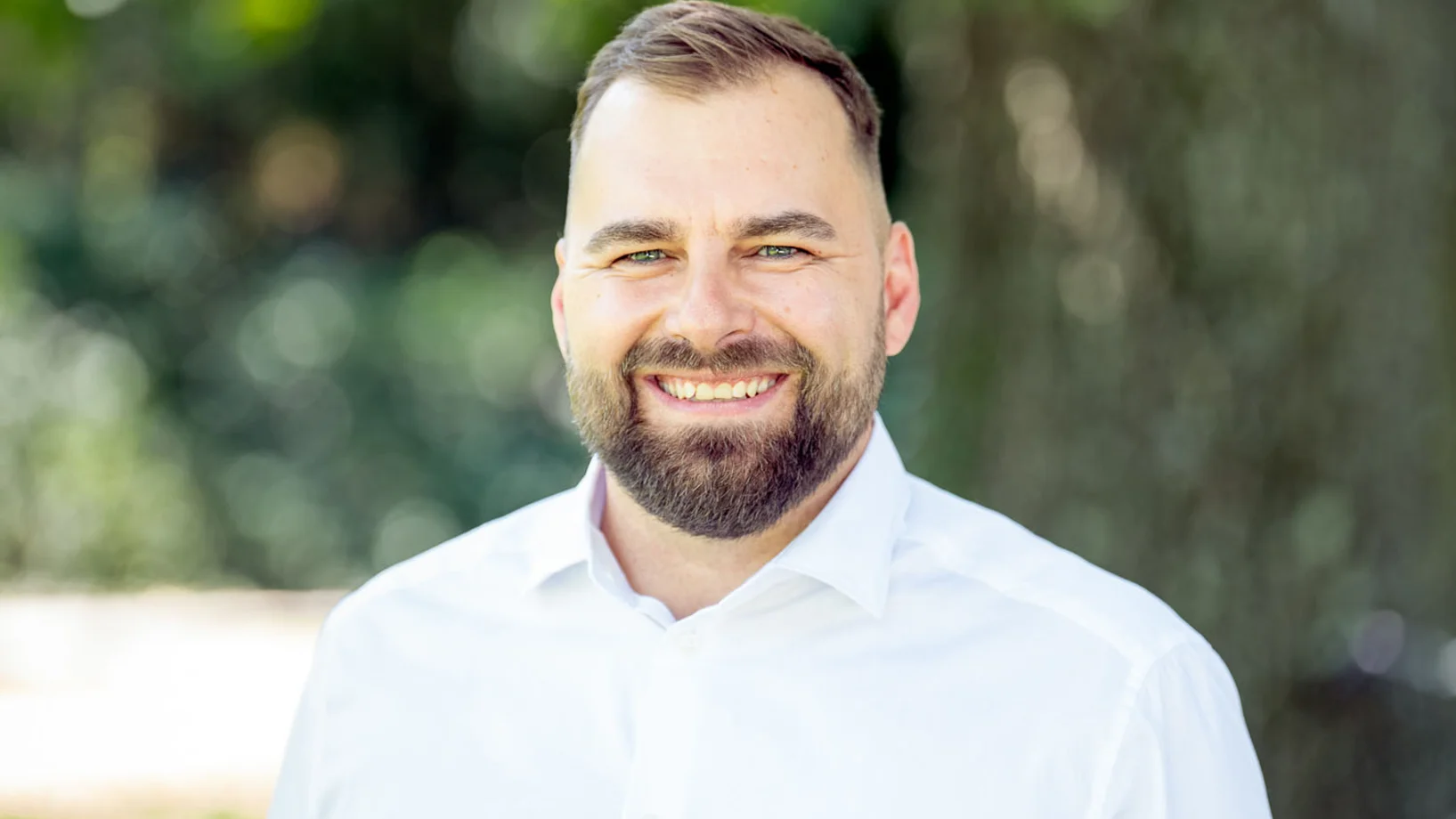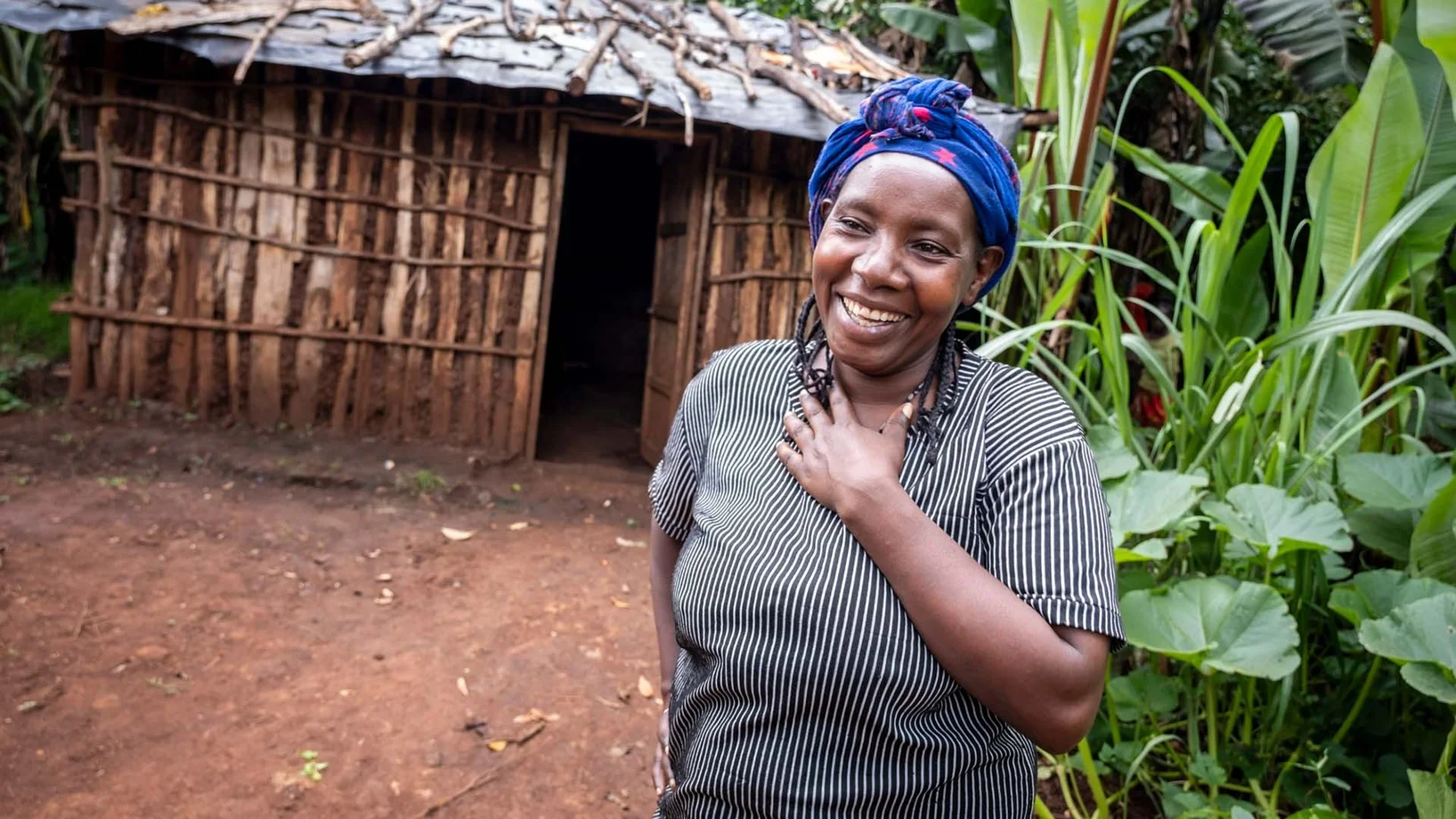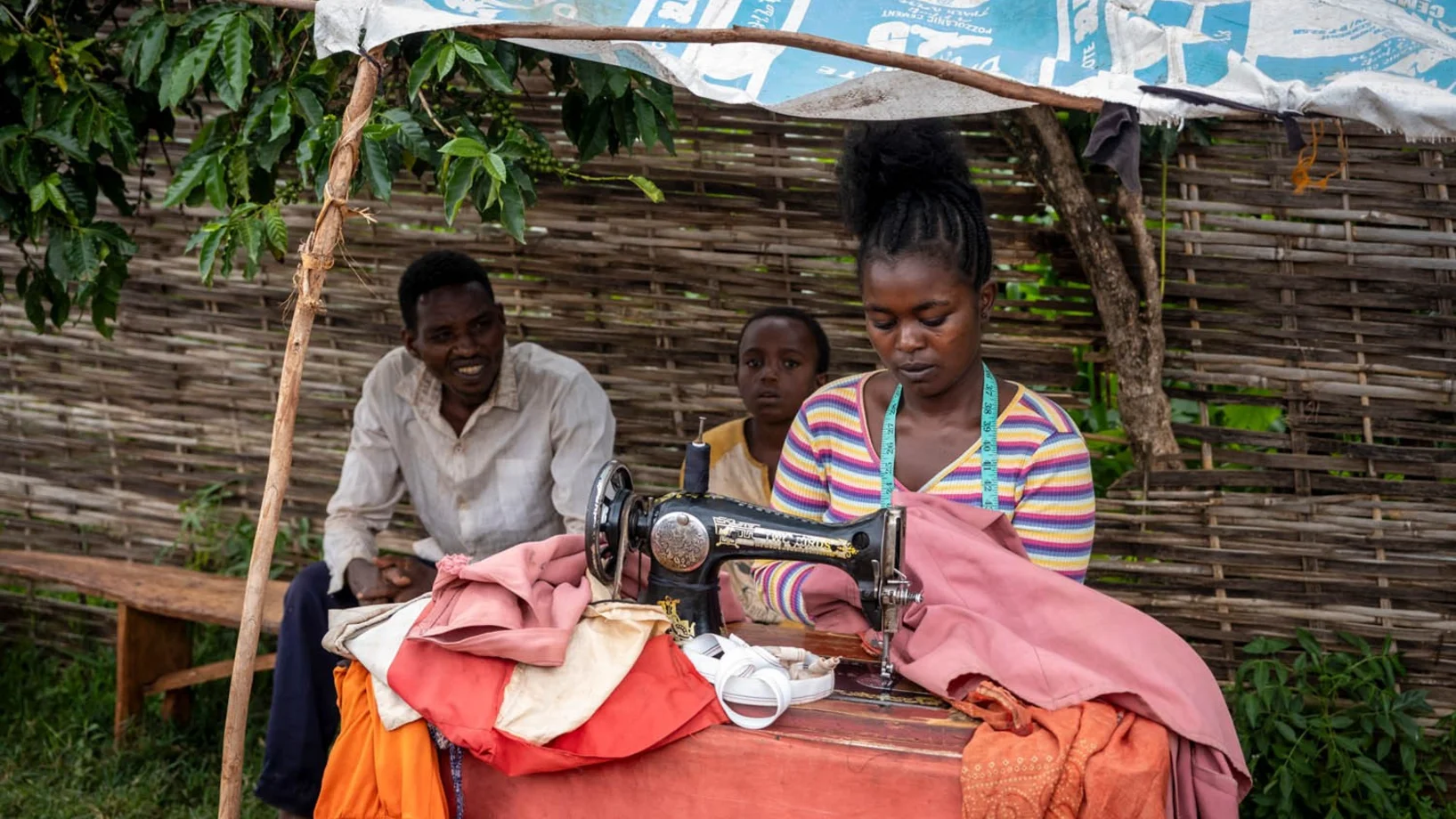“Ethiopia needs women!”
Zurich/Addis Ababa, August 31, 2021 - It doesn't matter whether their jewelry is from China and their clothes are second-hand: 110 women proudly and confidently celebrated the completion of their training in Ethiopia's capital Addis Ababa. “It takes us women to develop this country,” said Elsa Tadesse in her speech to applause from her fellow graduates.
Single women without education have little chance in the megacity of Addis Ababa. Some mothers slip into poverty-stricken prostitution in order to feed their children. Others leave their children with their grandparents, migrate to the Gulf states and live there as domestic servants like slaves. The Ethiopian humanist Abebech Gobena recognized that women need alternatives in order to be able to live with dignity in their homeland. That's why the Swiss aid organization Menschen für Menschen and Gobena's organization Agohelma train particularly poor women to become cooks and housekeepers.
At the graduation ceremony at the end of August for the 110 graduates of the most recent six-month course, the gap left by Abebech Gobena was noticeable: the “Mother Teresa of Africa” died of a corona infection on July 4th at the age of 83. The Washington Post wrote in her obituary: "Through innovative fundraising and with the help of foreign organizations, including Menschen für Menschen from Switzerland, she built a nonprofit organization that provided shelter, food and education for thousands of children."
If you want to help the children, you have to help the mothers - this is what the vocational training program is based on. Only women who are particularly poor are accepted there - and who have life stories like Hebron Belehu, who traveled to Dubai in her early twenties to work as a domestic worker. She wanted to take care of her two small children, who stayed during that time with her mother in Ethiopia. “Life in Dubai was bad,” she reported in her closing speech. «Insults from the landlady were the order of the day. I didn't get enough to eat. One night the owner of the house tried to rape me."
She fled onto the streets – without papers. She therefore had to work illegally and without rights in other houses for four years. She became pregnant by an American soldier, reported herself to the authorities when she was nine months pregnant and was deported back to her homeland. Years of despair followed. «I couldn't find a job and had to rely on the pity of others with my newborn son. My relatives condemned me for the relationship with the American who abandoned me." It was only through her training that she found her way out of her depression: “I feel like a new person!” The training program also includes placement in first jobs: A week ago, Hebron Belehu started her first job, in room service at a large hotel in Addis Ababa - although the corona pandemic continues to slow down the hospitality industry in Ethiopia.
Confident in the world of work
Radeet Berhanu, 20, who completed her home economics training two years ago, told the graduates about her development. She found a job in the Transportation Authority's daycare center. There she not only gets a decent salary, but also the opportunity for free further training. She has just completed a course in accounting and hopes to pursue a career within the agency.
An essential part of the training is not only building up technical knowledge, but also belief in yourself: “We learned that we can develop. “Also by working together and helping each other,” emphasized graduate Elsa Tadesse in her speech. «The problems of our country cannot only be solved by humanitarian organizations. It takes the contribution of all of us – especially women. Now we have the opportunity to do that.”
With the 110 graduates, a total of 1,170 poor women have now completed the training, which is made possible by Menschen für Menschen. Discussions for admission to the new course are currently underway, and classes will begin after the Ethiopian New Year in mid-September.
Über die Stiftung Menschen für Menschen
Menschen für Menschen setzt sich gegen Armut und Hunger ein. Die Stiftung wurde von dem Schauspieler Karlheinz Böhm (1928 – 2014) gegründet. Im Geiste des Gründers schafft das Schweizer Hilfswerk Lebensperspektiven für die ärmsten Familien in Äthiopien. Ziel der Arbeit ist es, dass sie in ihrer Heimat menschenwürdig leben können. Schwerpunkte der einzelnen Projekte sind Frauenförderung, Berufsbildung, Mikrokredite, Kinderhilfe, Familienplanung und landwirtschaftliche Entwicklung. Die Komponenten werden nach den lokalen Bedürfnissen kombiniert und mit sorgfältig ausgewählten einheimischen Partnern umgesetzt.





